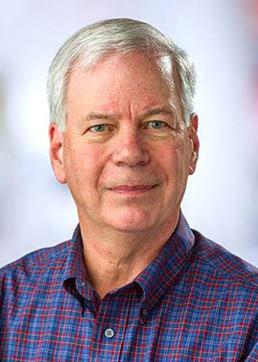Thomas Kensler, Ph.D. is a translational scientist who specializes in cancer prevention. His research focuses on the signaling pathways in cells and how they interact to defend, adapt, and maintain health within the body and organs. He studies the central stress defense/adaptive response signaling pathway in cells and how those pathways interact with other signaling networks to achieve “health maintenance” within the body and its organs.
For decades, he has worked to discover the biochemical and molecular mechanisms involved in the induction of cancer by environmental carcinogens, so that this knowledge may serve as a basis for preventing, interrupting, or reversing these processes. Among other projects, he and his colleagues work to develop strategies to protect against unavoidable exposures to environmental carcinogens in air, water and food. From 2014 to 2017, he was a Thomsen Reuters most highly cited researcher.
He also is known for his research in “green chemoprevention” using the compounds from cruciferous vegetables to prevent cancer. Such vegetables, like broccoli and watercress, are rich in isothiocyanates, with sulforaphane and phenethyl isothiocyanate being two of the most important. In animal studies, Dr. Kensler and others have been able to show how these agents seem to block the effects of free radicals, which can damage DNA and play a role in the development of cancer and other diseases.
In other research with practical goals, Dr. Kensler has worked to conduct clinical trials in Qidong, China where exposure to carcinogens in food and via the air is considerable. In this population, his study showed that a broccoli sprout beverage enhanced the ability of a person to excrete benzene, an airborne pollutant in the area. This intervention may be able to reduce the associated health risks of breathing benzene, which includes cancer. Dr. Kensler and his team continue work to optimize the dose, formulation and biomarkers of pharmacodynamic action in these molecules.

